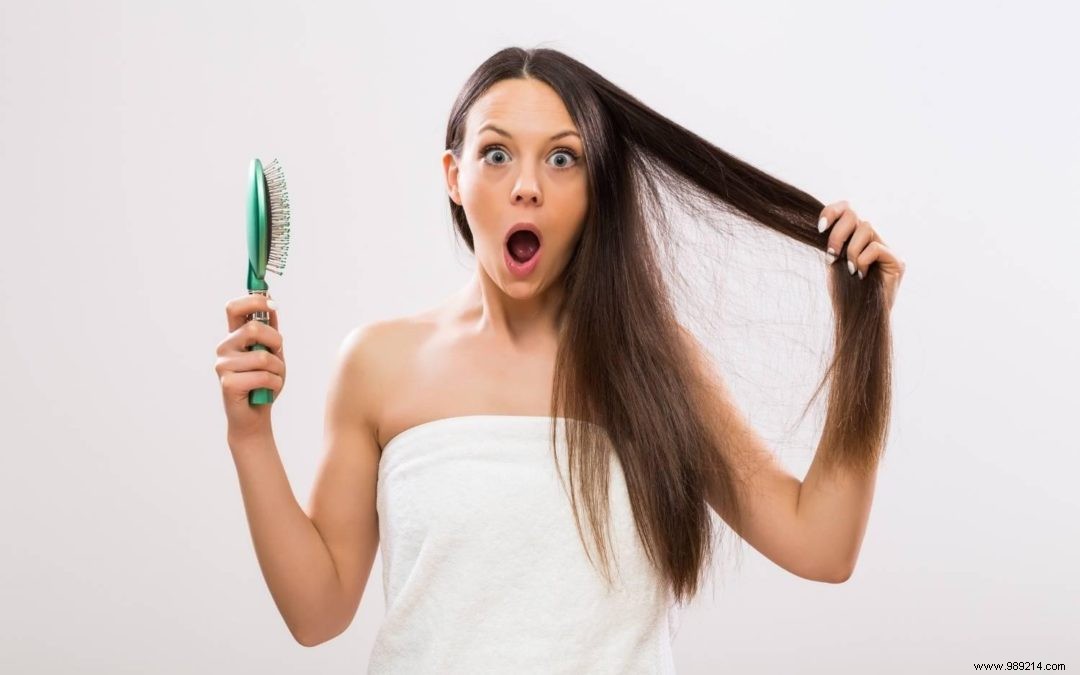
Hair is part of our physical identity. They participate in spite of themselves in drawing what we are. But by the way, how does the scalp work? Why is the hair falling out? What to do when it becomes too important? Who to consult? We you let's bring the answers to these questions.
Hair loss, within reason, is completely normal. We have on average 120,000 hairs and we lose about a hundred a day. In principle, this does not impact our hair because there are no less than 200 per cm². A hair has a lifespan of about 5 years and each hair follicle goes through between 20 and 30 hair cycles before ceasing to function. So there's no need to get white hair!
Just like us, hair has a life cycle:
Good to know :
The number of hairs growing is far greater than the number of hairs that have stopped growing or are falling out.
In some cases, hair loss will accelerate and the regrowth will not equal or exceed the amount lost. This is called alopecia , because the hair begins to thin out. This rarefaction of hair growth is progressive and affects men more often than women in very specific places:first of all at the level of the forehead and on the upper part located at the back of the skull.
Good to know:
Run your fingers through your hair like you would a comb. If twenty or so hairs end up in your hand, you are dealing with abnormal hair loss.
There are many causes of hair loss, more or less alarming:
It's no secret that we lose our hair more in the fall than in other seasons. The same goes for furry animals like dogs! The fault of the hormones which find themselves over-stimulated by the sun during the summer months and which tend to accelerate the growth of our hair. It is therefore normal to lose them more and more quickly from the start of the school year (2 to 4 times more!).
Certain disorders can affect the scalp, such as infectious diseases, the thyroid or genetics and heredity.
A strict diet can cause alopecia, especially if it is accompanied by deficiencies (in zinc, magnesium, calcium and iron). People who follow a vegetarian diet sometimes have more hair loss, because iron of vegetable origin is less well assimilated by the body than that of animal origin.
Evils of the mind can impact the body in many ways. The hair can be victims, in particular of what is called alopecia areata (a particular and very localized form of hair loss) or bleaching of the hair.
Hair has a close relationship with hormones. Indeed, hair follicles have hormone receptors and are particularly sensitive to estrogen and progesterone . These female hormones vary over the course of a woman's life, whether during pregnancy or at menopause. When a pregnancy sets in, the level of female sex hormones increase and protect the hair, which has the effect of making it grow and keeping it in shape. After giving birth, the opposite happens and the hair begins to fall a few months later. As for menopause, it can cause hair loss and a change in its appearance.
Although necessary for a multitude of operations, the chemicals used in anesthesia can cause alopecia because they are toxic to the roots . In the vast majority of cases, the hair will of course end up growing back!
The 3 golden rules:avoid overheating them (both with water and air), space out washes (no shampoo every day), let them breathe (avoid hairspray and other products).
Be careful to adapt the shampoo and conditioner to your hair type (dry, oily, etc.). It is also necessary to rinse them well because they tend to weigh down the hair and sometimes attack the hair fiber. If the hair loss is not too severe, there are specific anti-hair loss treatments to reduce the phenomenon.
Certain foods promote beautiful hair and slow down hair loss. This is the case, for example, of those containing sulfur amino acids such as fish, meat, eggs, legumes and cereals. We also add to this the trace elements.
Before considering treatment, you must know the cause. It will indeed be different if it is hormonal than if it is food for example. Consult a dermatologist first.
If the malaise is real, a hair transplant may be considered. However, this operation is costly. Do not hesitate to make an appointment with your dermatologist for more information.
Hair no longer has any secrets for you and you now want to deepen your knowledge on a subject of the same theme? We have exactly what you need! Discover how to take care of a beard !